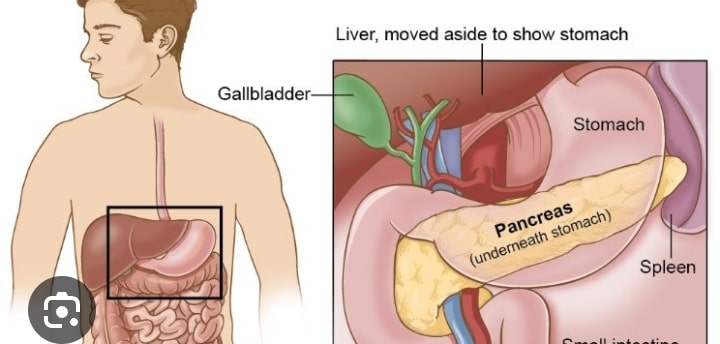Body Parts Affected by Diabetes
Diabetes is a chronic condition which occurs when your body is not able to make use of glucose. When you eat, your body breaks down the food and convert the food into glucose and then releases it into your blood stream. When the glucose level in the bloodstream goes up, it alerts the pancreas to release insulin. Insulin carries the glucose to the cells to use as energy. Diabetes sets in if your pancreas does not produce enough insulin for the cells to use as energy or the body cells do not recognize the glucose to use as it’s energy there by making the glucose or sugar in the blood excessive and this can cause serious health problems. That’s why you need to know the body parts affected by diabetes.
Others also read: Signs that You are Eating Too Much Salt
Others Also read: 17 Signs You Have Found Your SoulMate
See also: Potential victims of Kidney Disease
Others also read: Early Sings And Symptoms Of Uterine Fibroids
Types of diabetes
1. Type 1 diabetes: This type of diabetes is caused by an autoimmune reaction, where the body attacks itself mistakenly affecting the production of insulin. When this occurs, the glucose or sugar remains in the bloodstream without getting to the cells to use as energy. The cause of type 1 diabetes is not known.
2. Type 2 diabetes: This occurs when your body cells do not use insulin as it’s suppose to or your body cells do not recognize insulin. This is called insulin resistance, when it happens like that the pancreas produces more insulin to carry the excess glucose or sugar in the bloodstream to the cells but the cells do not recognize the insulin.
3. Gestational diabetes: Gestational diabetes occurs when a pregnant woman who wasn’t diabetic is diagnosed with diabetes. Gestational diabetic mothers normally give birth to unhealthy children. Gestational diabetes always resolves after childbirth. / body parts affected by diabetes.
4. Pre – diabetes: This occurs when one’s blood sugar is high, but the blood sugar level isn’t high enough to be diagnosed as type 2 diabetes. Prediabetes means the person is at very high risk of developing type 2 diabetes.
Signs and symptoms of diabetes
1. Frequent thirst
2. Unexplained weight loss
3. Increased hunger
4. Frequent urination. / body parts affected by diabetes.
5. Blurred vision
6. Fatigue
7. Mood changes
8. Slow wound healing
9. Fruit – like Breath
10. Irritability
Body Parts Affected by Diabetes
Diabetes affect your major body parts, that’s why it’s necessary to know the body parts affected by diabetes to avoid unwanted complications.
1. Eyes : When blood sugar levels remain high for a long time, it affects the tiny blood vessels in your eyes, causing eye problems such as blurred vision and even blindness.
2. Nerves : Nerves carry messages from the brain to other parts of the body. When your blood sugar remains high for a longer time, it affects the blood vessels which supply blood to the nerves and, therefore, the nerves will be deprived of nutrients and oxygen, causing those nerves to die, and when this happens, the part of the body these nerves supplies messages to will be deprived of such messages making the person not to feel pain on that body part./ body parts affected by diabetes.
3. Kidneys: The kidneys filter waste products from the body and keep the useful ones in the body. When blood sugar remains high for a longer period, it affects the blood vessels that supply blood to the kidneys, making the kidneys unable to filter waste products from the body. Diabetes is one of the major causes of kidney failure.
4. Feet : Diabetes affects major nerves that supply messages to the feet there by making the person not to feel pain in the feet. It also affects blood vessels that supply blood to the feet there by leading to slow wound healing and infection. When a wound refuses to heal, the feet can be amputated./ body parts affected by diabetes.
5. Heart: Persistent high blood sugar can affect the major blood vessels that supply blood to the heart. When this occurs, it can lead to a stroke or heart attack.
6. Gum: High blood sugar can increase the amount of sugar in your saliva there by making the mouth and gums a suitable place for bacteria and also lead to plaque formation there by causing gum diseases.

